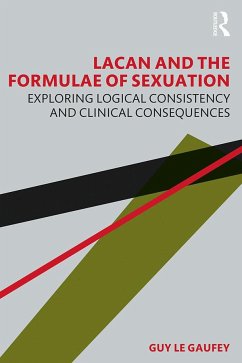
Projective Identification
The Fate of a Concept
Herausgegeben: Spillius, Elizabeth; O'Shaughnessy, Edna
Versandkostenfrei!
Versandfertig in 6-10 Tagen
45,99 €
inkl. MwSt.

PAYBACK Punkte
23 °P sammeln!
In this book Elizabeth Spillius and Edna O'Shaughnessy explore the development of the concept of projective identification, which had important antecedents in the work of Freud and others, but was given a specific name and definition by Melanie Klein. They describe Klein's published and unpublished views on the topic, and then consider the way the concept has been variously described, evolved, accepted, rejected and modified by analysts of different schools of thought and in various locations - Britain, Western Europe, North America and Latin America.The authors believe that this unusually wid...
In this book Elizabeth Spillius and Edna O'Shaughnessy explore the development of the concept of projective identification, which had important antecedents in the work of Freud and others, but was given a specific name and definition by Melanie Klein. They describe Klein's published and unpublished views on the topic, and then consider the way the concept has been variously described, evolved, accepted, rejected and modified by analysts of different schools of thought and in various locations - Britain, Western Europe, North America and Latin America.
The authors believe that this unusually widespread interest in a particular concept and its varied 'fate' has occurred not only because of beliefs about its clinical usefulness in the psychoanalytic setting but also because projective identification is a universal aspect of human interaction and communication.
Projective Identification: The Fate of a Concept will appeal to any psychoanalyst or psychotherapist who uses the ideas of transference and counter-transference, as well as to academics wanting further insight into the evolution of this concept as it moves between different cultures and countries.
The authors believe that this unusually widespread interest in a particular concept and its varied 'fate' has occurred not only because of beliefs about its clinical usefulness in the psychoanalytic setting but also because projective identification is a universal aspect of human interaction and communication.
Projective Identification: The Fate of a Concept will appeal to any psychoanalyst or psychotherapist who uses the ideas of transference and counter-transference, as well as to academics wanting further insight into the evolution of this concept as it moves between different cultures and countries.














